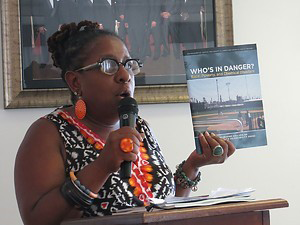Girls’ Friendly Society and Covid-19
 by Catherine Sopko, GFSUSA Junior Delegate
by Catherine Sopko, GFSUSA Junior Delegate
The outbreak of the coronavirus worldwide has had a massive effect on the church and the Girls’ Friendly Society (GFS). Though these times have been hard and there has been a major adjustment period, with the help of Zoom and other online tools, we have been able to connect in ways never thought possible before.
The Girls’ Friendly Society World Council, which was set to be held in South Africa in July 2020, has now been moved to the summer of 2021. Holly Shafer, a GFS ambassador and member from California, said, “The coronavirus is something that is still being researched and in trial phases of how to fight it, therefore I feel confident that GFS World is doing what is in the best interest of its members and attendees by postponing World Council and rescheduling for a later date.” Though all members were looking forward to spending 10 days in such a culturally rich country this summer, we understand that it is for our best interest and safety and are looking forward to next year. Once we get there, we will be even more excited since we had to wait so long.
Our GFS USA national spring board meeting and weekend retreat, which would have been held at our GFS Holiday House in Cape May, New Jersey, was also canceled. The board meeting took place as a Zoom call instead. The meeting went well, and since Zoom is so accessible, there were even more friendly, smiling faces on the call, which was nice to see. Many GFS diocesan activities also had to be cancelled this spring – anniversary services, Creative Arts Days, Rally Days and Holiday House Camp Weeks. However, using Zoom, GFS dioceses have created new events. The GFS of the Diocese of Los Angeles used Zoom to host a series of meetings for its members – “Fly Away With GFS,” a trip away from the land of COVID-19 to the land of self-care to explore spiritual, social and professional self-care.
GFS parish branches have also begun to hold Zoom meetings with a wide range of activities – an Earth Day Celebration with learning about plants and compost, a Q & A with a parish priest, chair yoga, a magic show, and discussions about mental and emotional health. The success of our Board meeting, diocesan activities and Branch meetings really shows how capable Zoom is at bringing people together.
Lydia Kugler, a branch leader in New Jersey, remarked that “Zoom has allowed us to meet, plan and ‘see’ each other in the comfort of our own homes and even in our PJs if desired. What could be better!” Though our members may be physically apart, the internet and all of its tools has brought us even closer together.
Because of the coronavirus and the social distancing guidelines that have been put in place, diocesan activities were cancelled. In New Jersey, our Diocesan Convention was cancelled, which was quite disappointing. This event is not only a social gathering, but it is an important day to go over the policies and procedures used in our diocese. Personally, I looked forward to the convention every year. I was able to see members of the church whom I did not get to see that often, and to attend a service led by Bishop William Stokes (the best kind of service) and to stroll the convention center floor learning about and looking at all the different organizations that, when put together, make up a great diocese.
This is a strange time that we’re living through and lots of people are suffering. Besides those who are sick and/or recovering, whom we pray for every day, there are also the high school and college seniors who are missing their graduation ceremonies, as well as brides who have to reschedule their big day. There are many support systems in place, and Holly Shafer, who is a professional in the mental health field, and a marriage and family therapist, would like everyone to know that “I have been working throughout the pandemic and have seen the effects that social isolation is having on my clients and the community as a whole. I would like to remind people that what they are experiencing is real and to reach out and ask for help as needed.”
For anyone who is in need or wants additional support, your GFS sisters will always be there to help or to be a shoulder to cry on. Please reach out to others if you are struggling, and we can get through these times together.
Ms. Sopko is a member of the Diocese of New Jersey. She become involved in The Girls’ Friendly Society when she was five years old. “I found GFS as a place where I could be myself, a place where I developed friendships, I learned confidence and the meaning of the GFS motto – Bear Ye One Another’s Burdens.”

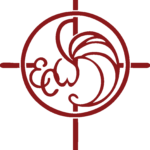
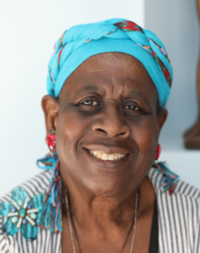

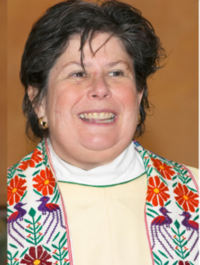 The Reverend Anna B. Lange-Soto
The Reverend Anna B. Lange-Soto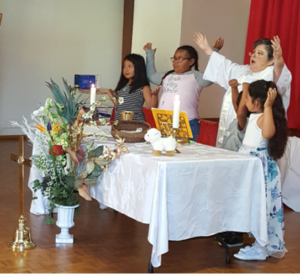
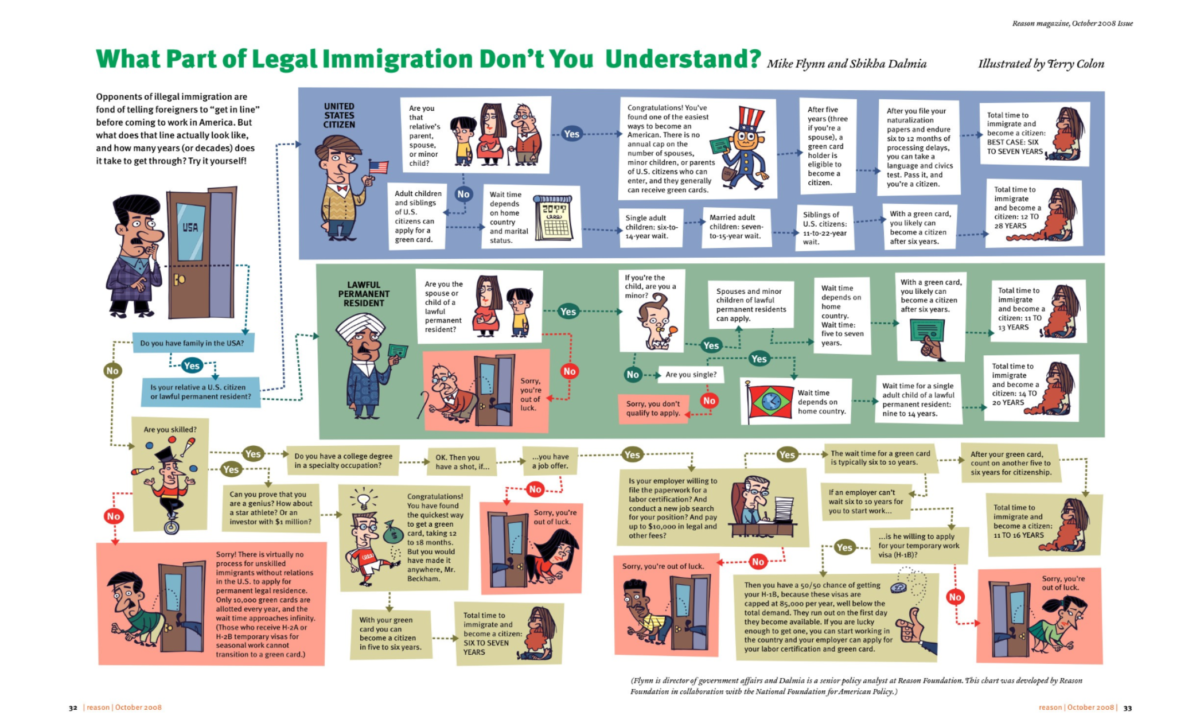
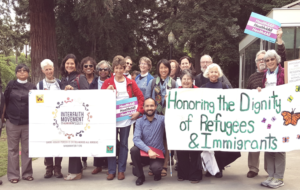
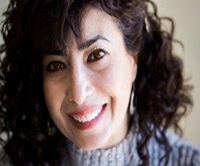 “For I know the plans I have for you,” declares the LORD, “plans to prosper you and not to harm you, plans to give you hope and a future. Then you will call on me and come and pray to me, and I will listen to you. You will seek me and find me when you seek me with all your heart.” (Jer. 29:11-13)
“For I know the plans I have for you,” declares the LORD, “plans to prosper you and not to harm you, plans to give you hope and a future. Then you will call on me and come and pray to me, and I will listen to you. You will seek me and find me when you seek me with all your heart.” (Jer. 29:11-13)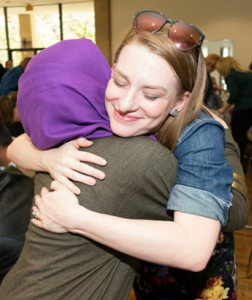
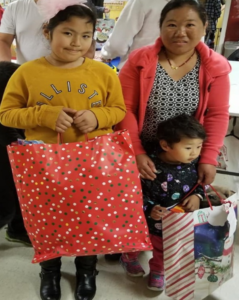
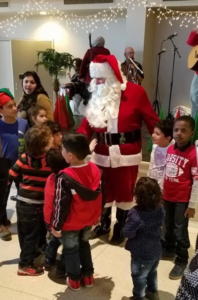
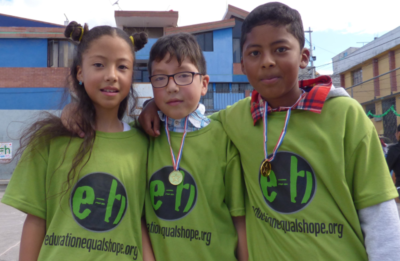 From the Episcopal Church Buen Pastor:
From the Episcopal Church Buen Pastor: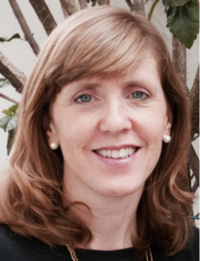 By Cameron Graham Vivanco
By Cameron Graham Vivanco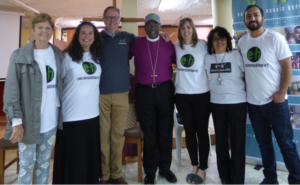
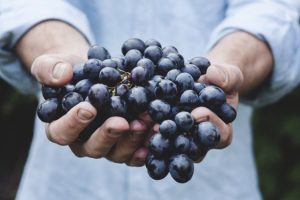 The climate crisis is a hot topic; talking about food can become visceral. Think about combining the two and it becomes a frightening prospect. Having grown up under the auspice of not bringing up religion in polite conversation adds its own challenges. Even so, the importance of bringing up all possibilities, inviting the conversation, cannot be over emphasized.
The climate crisis is a hot topic; talking about food can become visceral. Think about combining the two and it becomes a frightening prospect. Having grown up under the auspice of not bringing up religion in polite conversation adds its own challenges. Even so, the importance of bringing up all possibilities, inviting the conversation, cannot be over emphasized.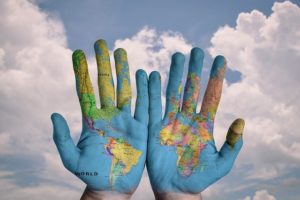 Earth Day is an annual event celebrated around the world on April 22 to demonstrate support for environmental protection. First celebrated in 1970, it now includes events coordinated globally by the Earth Day Network in more than 193 countries.
Earth Day is an annual event celebrated around the world on April 22 to demonstrate support for environmental protection. First celebrated in 1970, it now includes events coordinated globally by the Earth Day Network in more than 193 countries.